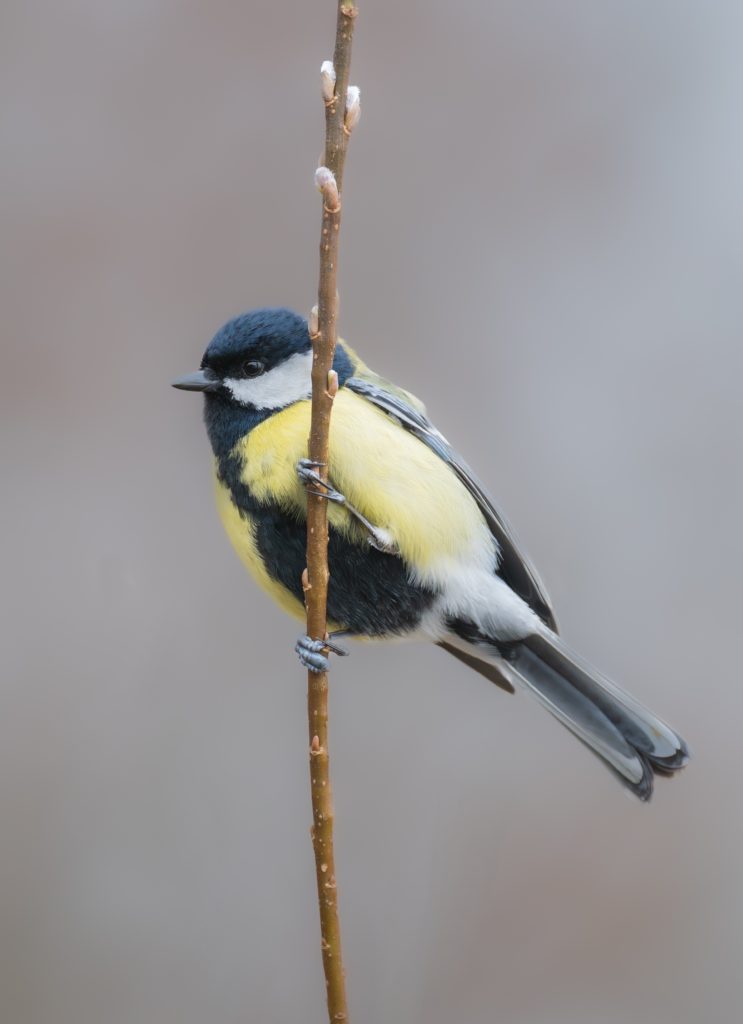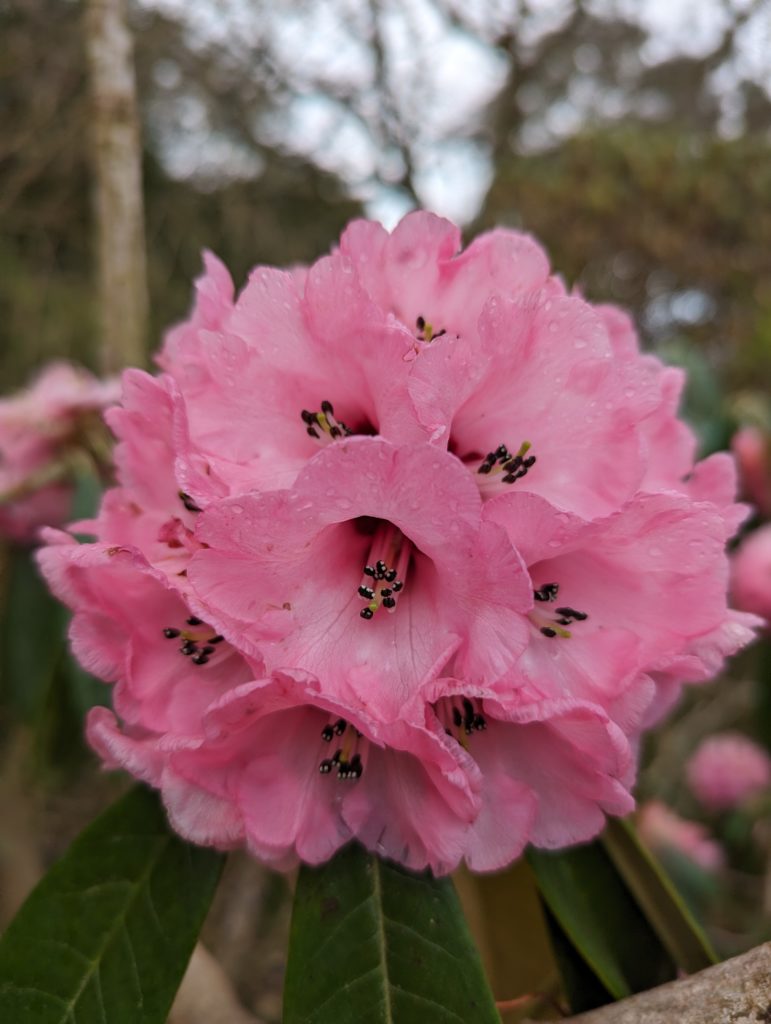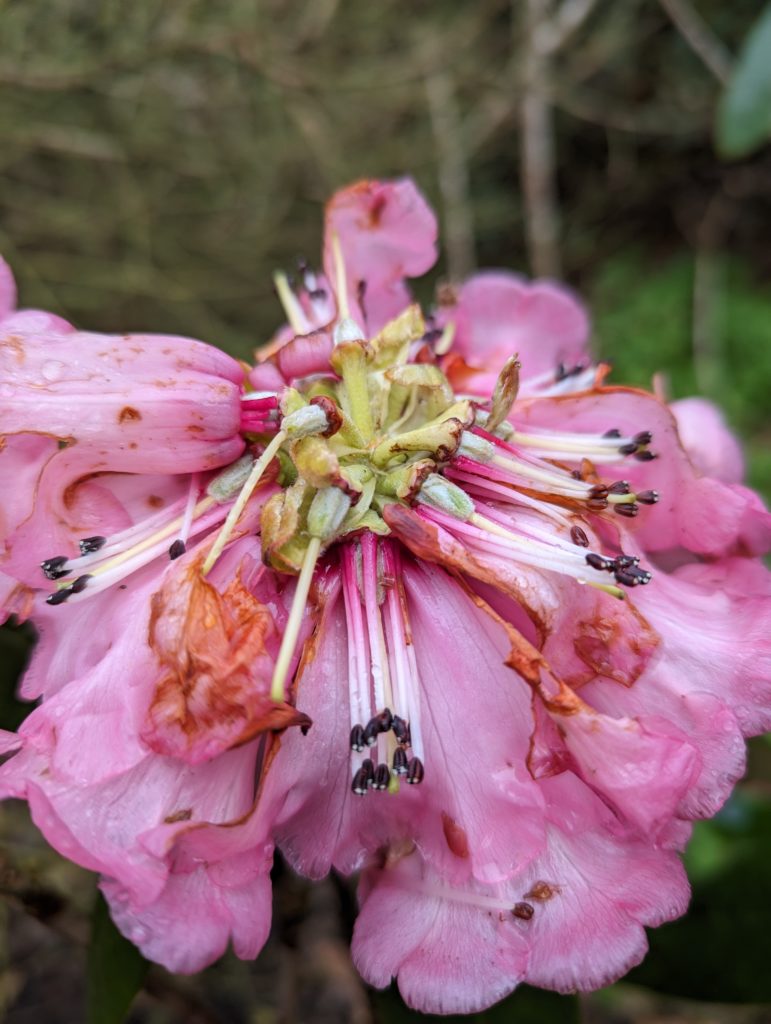Burglary at the Botanics may sound shocking but every spring there is an outbreak of crime. The burglars go about their business with impunity in broad daylight and thefts are a daily occurrence. The prize they seek is nectar and the victims of robbery are flowers, particularly the rhododendrons that are just beginning their annual spring/summer show.
This morning I caught a great tit in the act of sucking nectar from the salmon pink flowers of Rhododendron lanigerum. There was no doubt that the bird had learnt the liquid at the base of the flower – nectar – was sugary and a source of easy energy. The only way the tit could reach the nectar of the bell-shaped flower would be to pull it apart and expose the base of the floral tube. Now, if I was a witness in a court of law I would have to admit that I did not see the ‘smash’ but what I saw with my own eyes looked like the ‘grab’ as the bird drank its fill. Is that enough to close the case?

Nectar robbing is a surprisingly widespread problem for flowers and many different animals indulge in this nefarious activity. A good example would be short-tongued bumblebees unable to reach the nectar at the base of a slender flower. Not put off by this physical barrier, the bee bites a hole at the base of the flower and probes with its short tongue to reach the nectar. This is theft because the flower has lost valuable energy-rich nectar and the bee has not been dusted with pollen that would be carried off and deposited on the female part of another flower. The upshot being no pollination and, ultimately, no seeds. The flowers ability to manipulate the behaviour of a potential pollinator, for its own benefit, has broken down and the relationship now represents theft rather than the exchange of one thing (food) for another (pollination services).

Getting back to the rhododendron example, every spring we see both small holes, probably created by bees, and the much more dramatic flower dismantling that I saw the consequence of this morning. The assumption has been that only a bird could do the more serious damage that was clearly beyond the ability of a bee.

If you do an internet search on nectar robbing in rhododendrons you will find a little information about birds being implicated as robbers in UK gardens. However, the definitive proof, in the form of images or videos of birds pulling the flowers apart, generally seems to be missing. Yet, it turns out that certain birds have a bit of a reputation for thieving. When most people had milk delivered to their doorstep in foil-capped glass bottles it was common for tits to peck holes in the lids to get at the cream. It seems that tits are clever birds that will not let an easy meal pass them by.
Although we have not witnessed the whole process of nectar robbing by birds here at the Garden, the idea that certain birds are disposed to this behaviour has gained more credence. If anyone has any similar experience to share we would love to hear about it.
